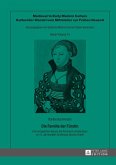Protestant mentality in Germany underwent much change during the nineteenth century. Cultural forces accompanying the process of modernization helped to make widespread an attitude of indifference toward Protestant Christianity. German Protestants, however, kept their confessional distinctiveness and never assumed a completely post-Christian sense of themselves. The experience of learning the Protestant faith as a child was crucial to preserving the Protestant identity. For many adults, especially in small-town settings, remaining a Protestant Christian meant living lost faith based upon childhood memories that Protestant clergy and instructors worked to create and shape.
Bitte wählen Sie Ihr Anliegen aus.
Rechnungen
Retourenschein anfordern
Bestellstatus
Storno








